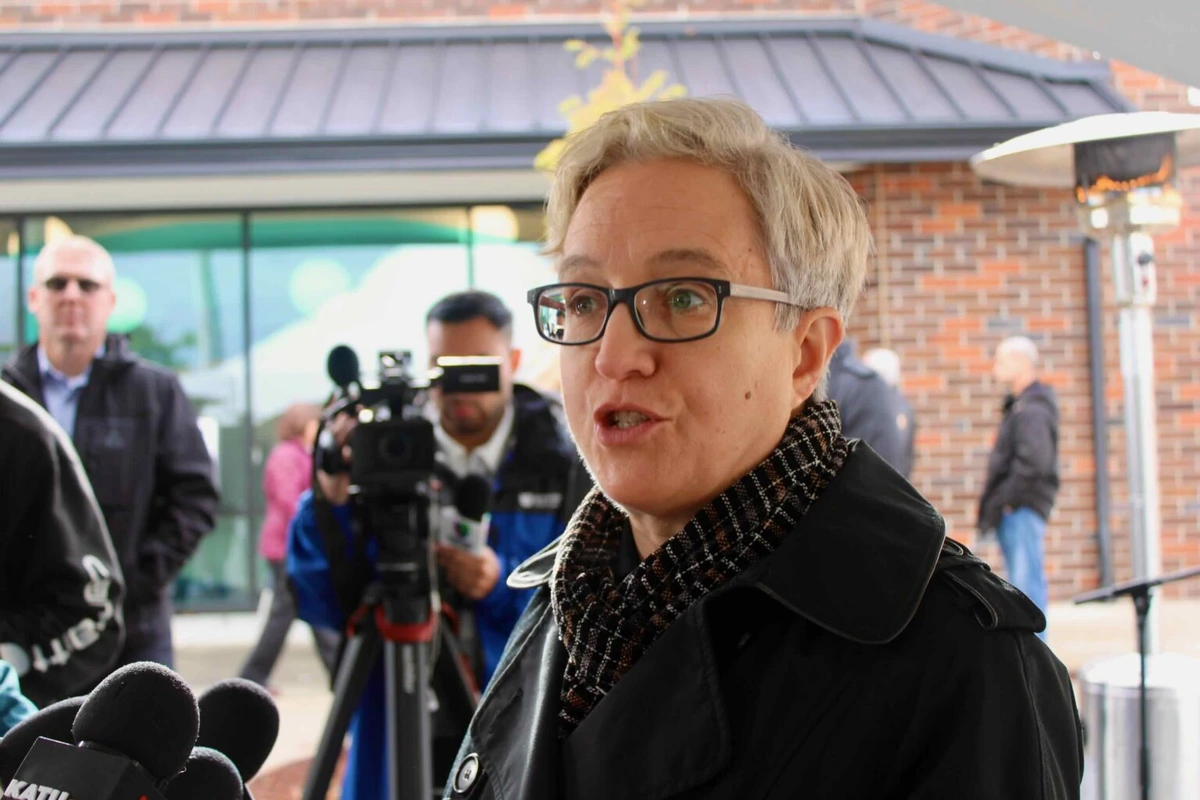
BEAVERTON — Oregon has added to its emergency supply of the abortion drug mifepristone, Gov. Tina Kotek announced Monday, but most of the state’s plans to respond to a second Trump administration are still up in the air.
While other Democratic governors have been vocal about their plans to respond to President-elect Donald Trump’s policies, Kotek has kept a low profile for the nearly two weeks since Election Day. She sent a written statement about election results and recorded video versions of that statement in English and Spanish, but Monday, after a ribbon-cutting ceremony for a new homeless shelter in Beaverton, was the first time she took questions from reporters since before the election.
“What I can tell people is, I’m going to protect our values,” Kotek said. “I’m going to stand up for what we need here in the state. I’m going to focus on our top priorities, and we will see what comes from the new administration. But I know that we can come together and protect what we love in our state no matter what happens at the national level.”
California Gov. Gavin Newsom called a special session to “Trump-proof” the state and allocate more funding for lawsuits challenging the Trump administration’s actions. Illinois Gov. J.B. Pritzker and Colorado Gov. Jared Polis announced last week they’d create a new group, called Governors Safeguarding Democracy, for Democratic states to coordinate efforts to oppose Trump but Kotek has not joined.
Newsom and Pritzker have frequently been named as possible presidential contenders in 2028, while Kotek has stressed that her focus is on the state — especially working on her top priority of housing, which she addressed in the Legislature by passing first-in-the-nation zoning reforms and as governor by shepherding hundreds of millions of dollars for shelters and homebuilding incentives.
Kotek said there’s no need for a special session in Oregon, noting that the state’s Legislature will begin its January session before Trump takes office and before lawmakers in other states gavel in. She’s in close contact with other governors — particularly a group of female governors — and said she has been getting advice from them.
“Look, we don’t know what’s coming,” Kotek said. “There’s a lot of rhetoric. We got to see what’s actually being proposed. But we’re not waiting. We’re also trying to understand, are our laws strong enough in the environmental area, when it comes to reproductive health care, when it comes to immigration? We’re looking at all those things, but until we know exactly what the new administration is proposing, it’s a little difficult.”
Protecting immigrants
She said she and other state leaders are still trying to understand how best they can protect immigrants living in Oregon from the mass deportations promised by Trump’s campaign. An estimated 120,000 people living in Oregon lack documents proving legal residency.
The state has one of the nation’s strongest sanctuary laws prohibiting police from cooperating with federal officials to enforce immigration laws.
“President Trump and his campaign said a lot of things,” Kotek said. “What I know is we don’t know what he plans to do or how he plans to do it, but what I will say is we have always stood up for the residents of Oregon, and that includes our immigrant communities, and we’re trying to understand what more we need to do to do that. And we don’t have that all worked out yet, but we will.”
Other matters
Kotek added that she’s working with the Biden administration to make sure Oregon receives the millions in funding it has been awarded for transportation projects from the federal government before Trump takes office Jan. 20.
On Monday, she announced that the Oregon Health Authority and Oregon Health & Science University have expanded the three-year supply of mifepristone she directed them to obtain in April 2023. That drug, along with misoprostol, can be used to terminate pregnancies and manage miscarriages.
Oregon’s prior stockpile was set to expire in September 2025. OHSU secured a new supply last week that won’t expire until September 2028.
This article appeared originally on the Oregon Capital Chronicle.
